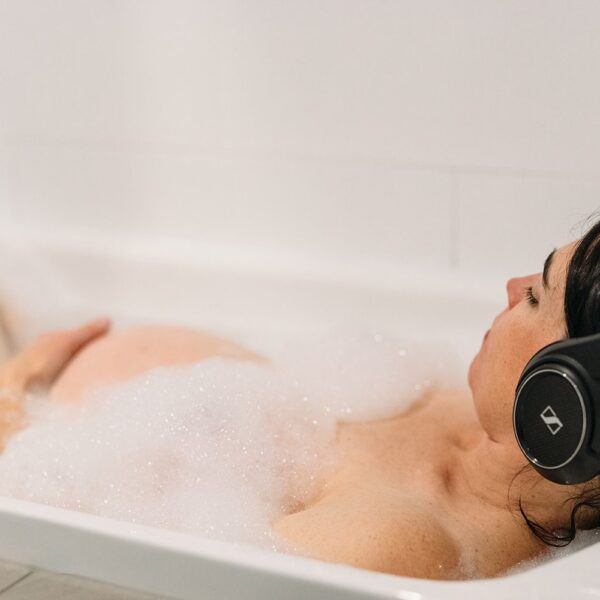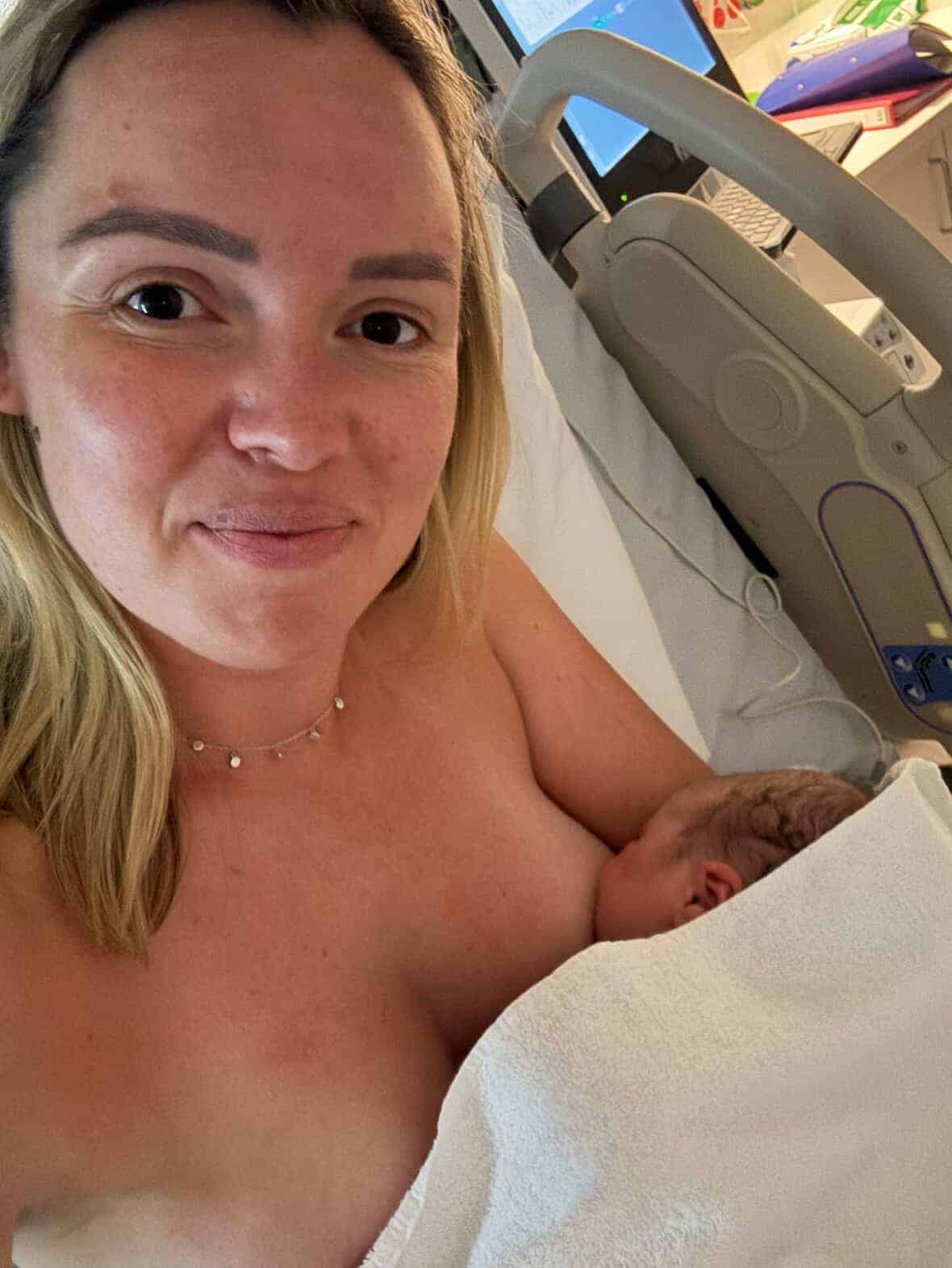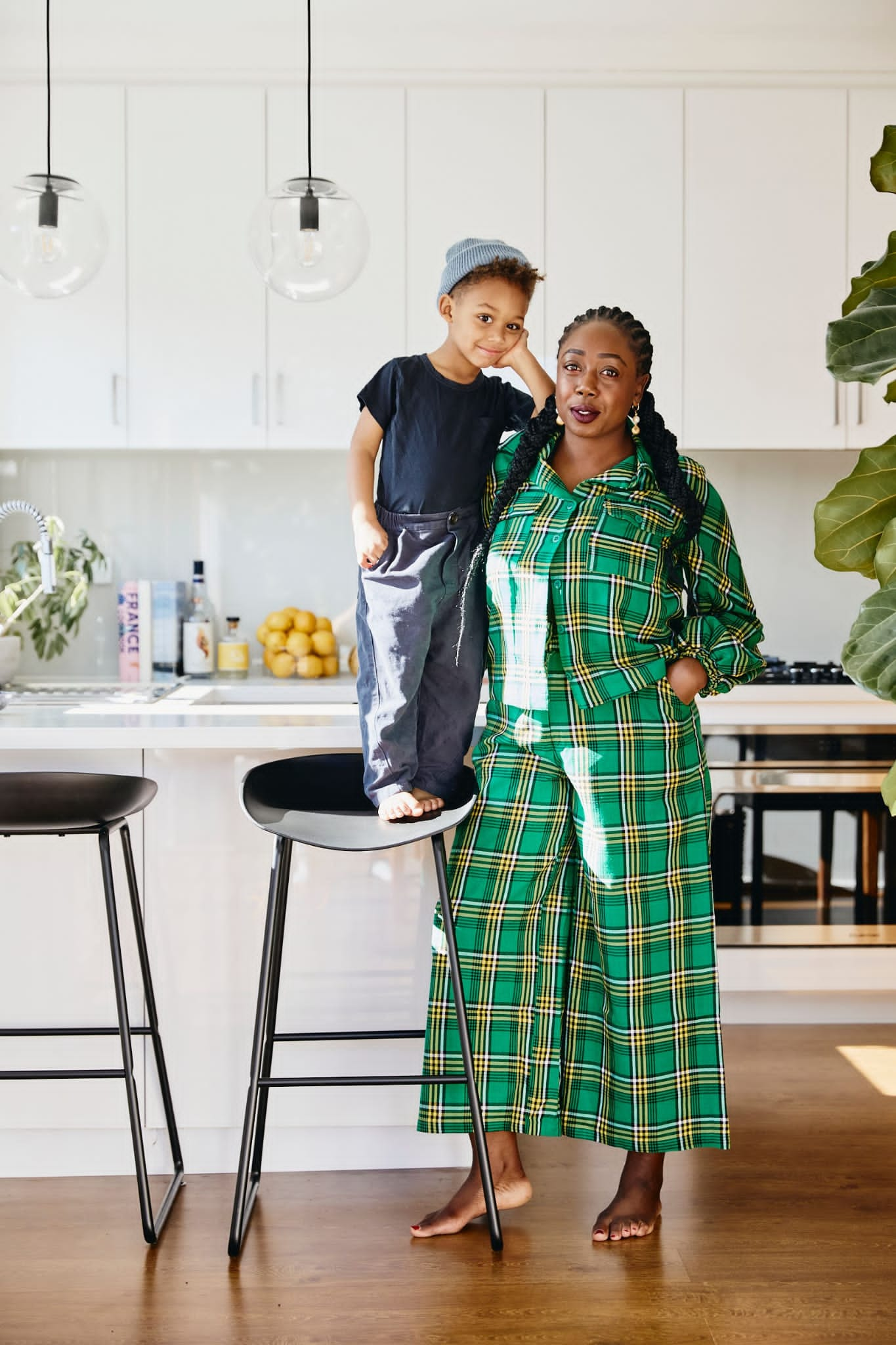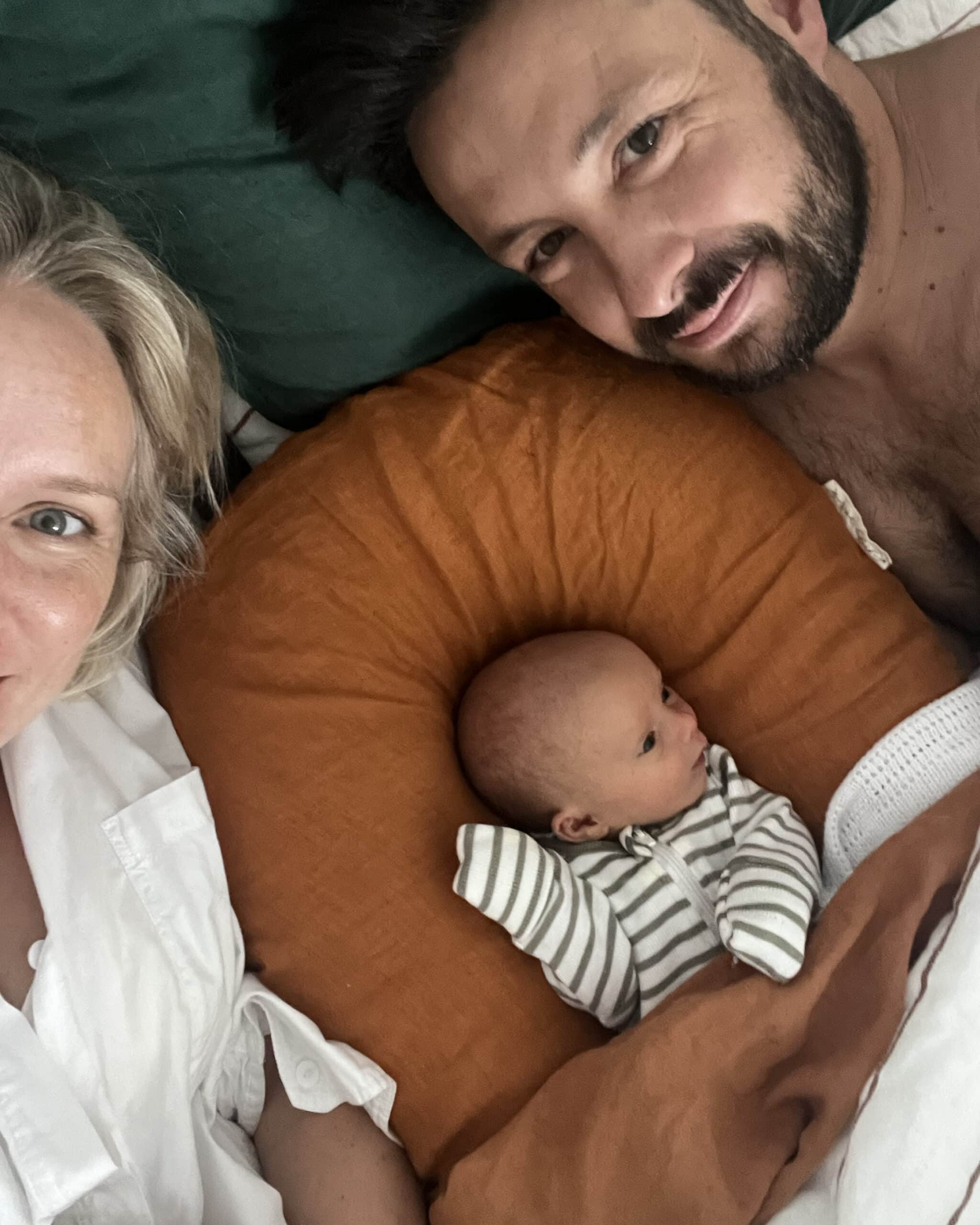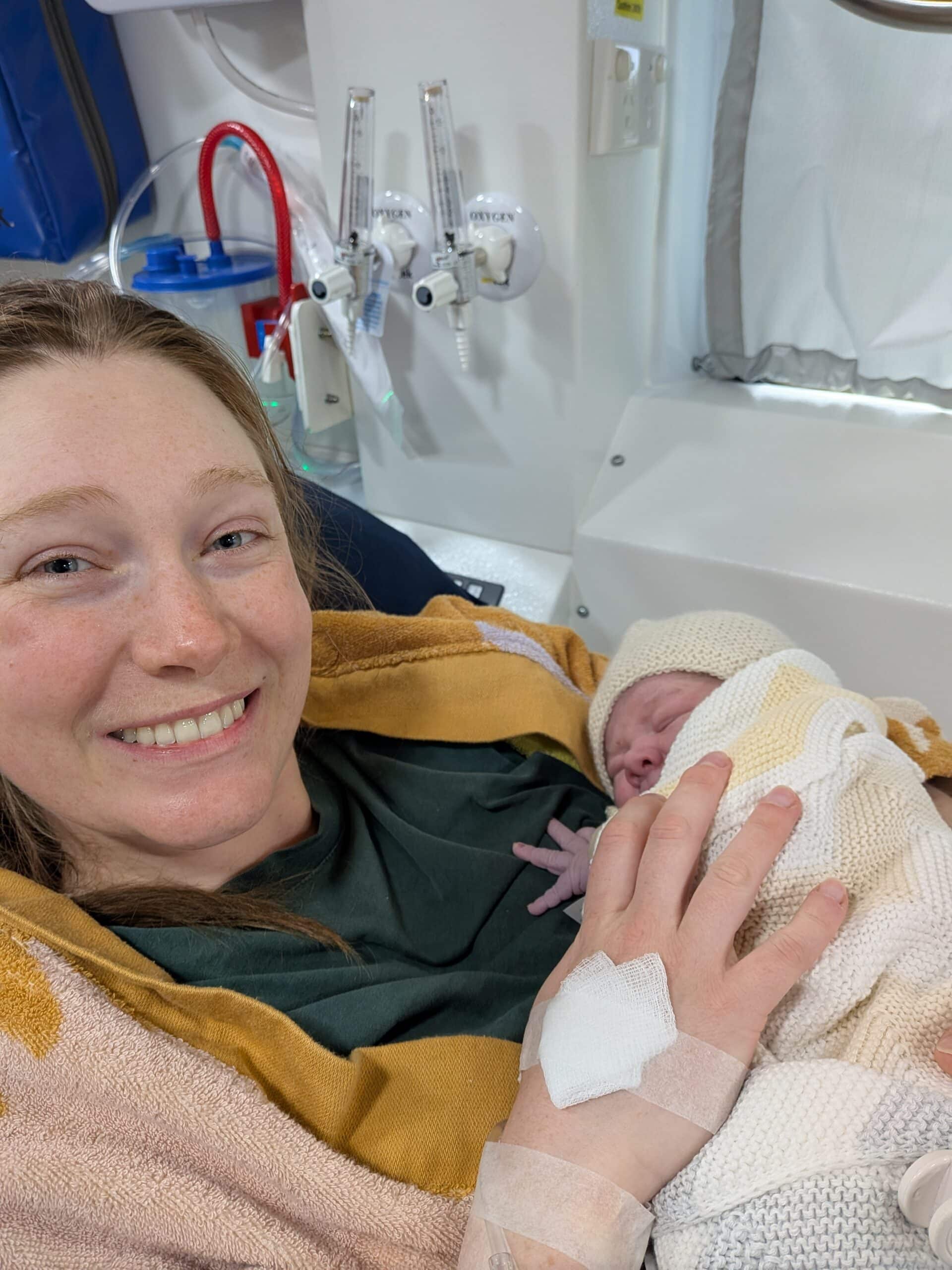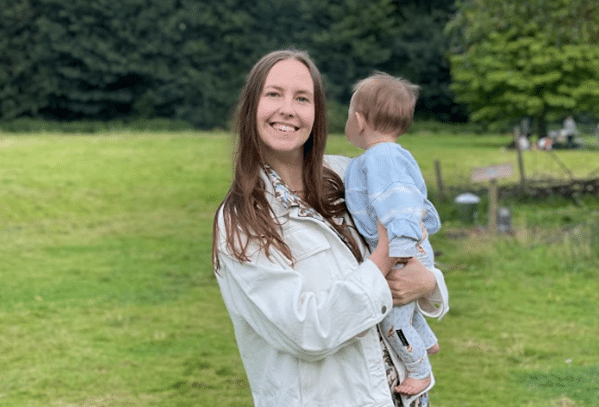Podcasts Sarah K
EPISODE 291
Sarah K
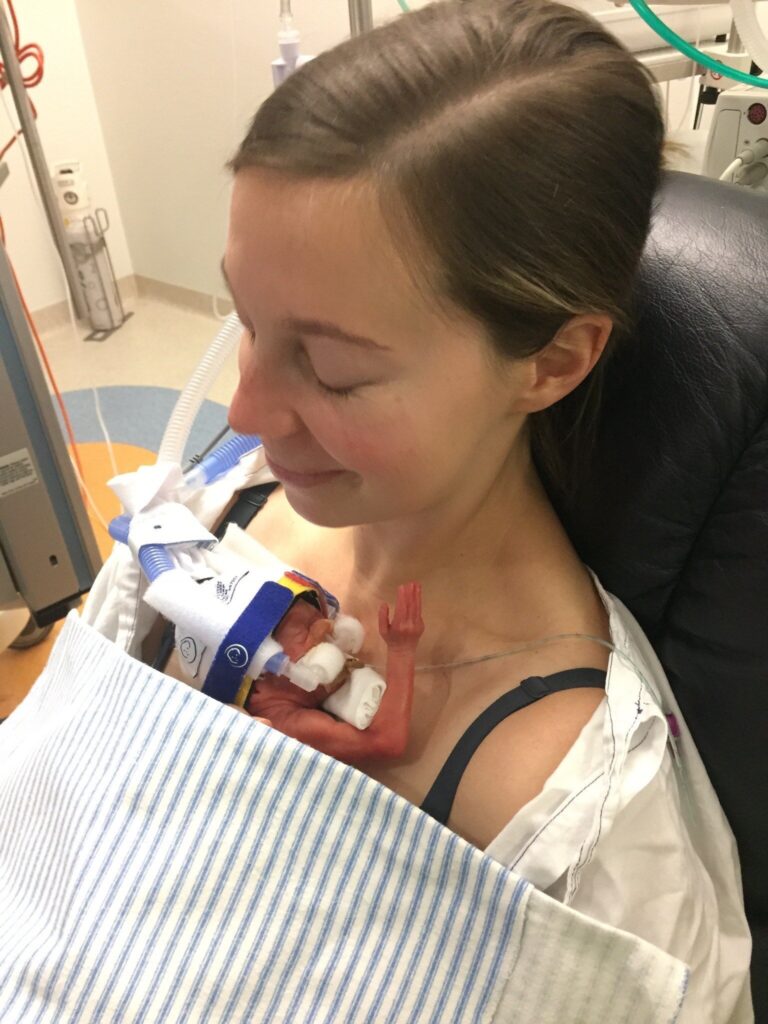
A midwife preparing to birth her first baby has to consciously let go of all the confronting births she has witnessed so she can actively prepare for her own experience. Sarah did exactly this, choosing to bring all of her awareness to the kind of births that she wanted to experience.
“I cherished how much experience I had with pregnant and labouring women. I felt really prepared but you also see the other side where things don’t go to plan and things change unexpectedly, and that can be hard and anxiety-inducing. I just held all the natural, beautiful births I’ve been involved in and focussed on them.”
She fell pregnant easily and had a low risk pregnancy so she was the perfect candidate for the birth centre that she worked in. She woke the day before her due date with light cramps and admits that she felt like a kid on Christmas morning. “I was very excited, I was really looking forward to the labour. I used the tens machine at home and laboured for a few hours. I decided to get in the shower but I didn’t last long in there before I told Casey that we needed to get to the birth centre.
She talks about the immense challenge of labouring in the car and the relief of hearing that she was 7-8cm. She got in the bath shortly after arriving at the birth centre and basked in the cal of the room; dim lights, candles, soothing music and the buoyancy of warm water.
“I was trying to relax my body as much as possible and then I heard my midwife openig up the birthing kit and I couldn’t believe I was that far. I hardly had to push, the midwife brought him through my legs and onto my chest, and it was the best moment of my life. And the greatest achievement, I was just so proud. Yes, I did it!”
Sarah admits that breastfeeding was extremely hard and the key to reaching her breastfeeding goals was to have great support. Her advice? “Seek support as soon as you can, especially in the early stages when you’re establishing supply and working out your baby’s latch. Support in the early stages can prevent so many problems.”
Sarah developed mastitis on day 6 and after seeking the advice and guidance of trusted lactation consultants and a pediatric surgeon, she chose to get Finn’s tongue tie cut. She ended up feeding him for 17months.
She was teaching a breastfeeding class in the birth centre where she works when she felt herself leaking. She didn’t think much of it but once the class was finished she raced to find a pad that changes colour with amniotic fluid. Her heart sank when she realised her waters had broken at 25 weeks pregnant. Her midwife was by her side within 10 minutes.
“To be honest, I just swore. I was in denial. Wendy wheeled me up to the hospital and advocated for me, we got into the assessment unit and they confirmed my waters had broken, she was breech and high risk for cord prolapse. I had to sign a consent form for a classical cesarean with a vertical scar and by that point I had started contracting. It was really frightening.”
She was given steroids to strengthen baby’s lungs, antibiotics in case of infection and medication to stop the contractions that were coming regularly. Her husband sept beside her in the hospital that night and the next morning she was sent for an amniocentesis to check for infection. That afternoon the results came back positive and the team started preparing her for a cesarean birth.
“They had trouble getting the epidural in so they had to do it twice. I just had to see her being born, it was so important to me and I was all ready, they’d checked to make sure I couldn’t feel anything and as they started cutting I screamed and I could feel it. My midwife held me while I cried and I saw my husband being taken out of the room and I was put to sleep. I was woken up and they told me that I had a baby girl and in that moment I just thought everything was going to be ok because girls generally do better in NICU. They also managed to do a lower segment cesarean which my midwife really advocated for; it means that I didn’t need the vertical cut and I can also attempt a VBAC for future births.
“Chloe was 770g. I remember placing my hand on her, it’s so surreal, putting your hand into the incubator to meet your baby. It took her 4-5 days for her to open her eyes, she was on full respiratory support and had so many cords. We were told she had an 80% survival rate but there were many times when I was sitting there and she would stop breathing and the team would need to resuscitate her.”
Sarah expressed colostrum which they put down Chloe’s nasal tube. They also put some on a cotton bud and let her lick it; a colostrum lollipop. Sarah stayed in hospital for five nights and went home, unsure of how to navigate her new reality.
“It takes a while to get accustomed to the fact that your baby isn’t with you and it was very hard at first. The best advice I was given was to imagine an invisible thread between my heart and Chloe’s heart to remind myself that we’re always connected, even if I’m not with her. It really comforted me. I would be at the hospital all day with her, first thing in the morning I would take all my milk in and put it in the fridge, I ended up donating 100L of milk to other babies. I would call at all hours to check on her, even at 2am when I was pumping.”
Sarah had her first cuddle when Chloe was two days old. “The nurse knew that’s what I needed to feel connected to her, she was my baby, I didn’t see her being born and I didn’t have that time to look down and recognise her so to have that skin to skin was exactly what I needed. We would do kangaroo care for hours, as long as possible and when she was 29 weeks we started breast experiences where we would place her near my nipple and she would smell and lick and get used to it. Her first feed was at 32 weeks and it was very difficult considering she was on CPAP but it was amazing, too.”
Chloe is now a spirited, smart and bubble two-year-old. She’s healthy despite having premature lungs and so when she does get a cold or a virus, she usually ends up in hospital for a day or two needing oxygen support.
Sarah offers this sound advice to parents of NICU babies:
- If you’re struggling, seek support: most neonatal units have support in place for parents and my psychologist fast became my guardian angel. She gave e-strategies from the get-go to help me navigate the journey which was, at times, just so hard.
- Prioritise skin to skin: it’s so special and it’s so important that parents are hands-on with their baby. Preemie babies are so fragile and it is confronting to hold them and change nappies but it’s so good for their and your connection. Kangaroo care is beautiful and beneficial on so many levels.
- Keep a journal: I found it really helpful to write down my thoughts and experiences every day. I also put photos in and I could see that she was progressing; it was a real comfort.
- Get a good breast pump: you’ll need to pump all the time – at hospital and at home – so a recommended brand is a priority.
- Request a meal train: if friends and family don’t know how to help, request a meal roster. We had meals delivered to us for months and it just made everything so much easier knowing that we didn’t have to cook dinner every night.
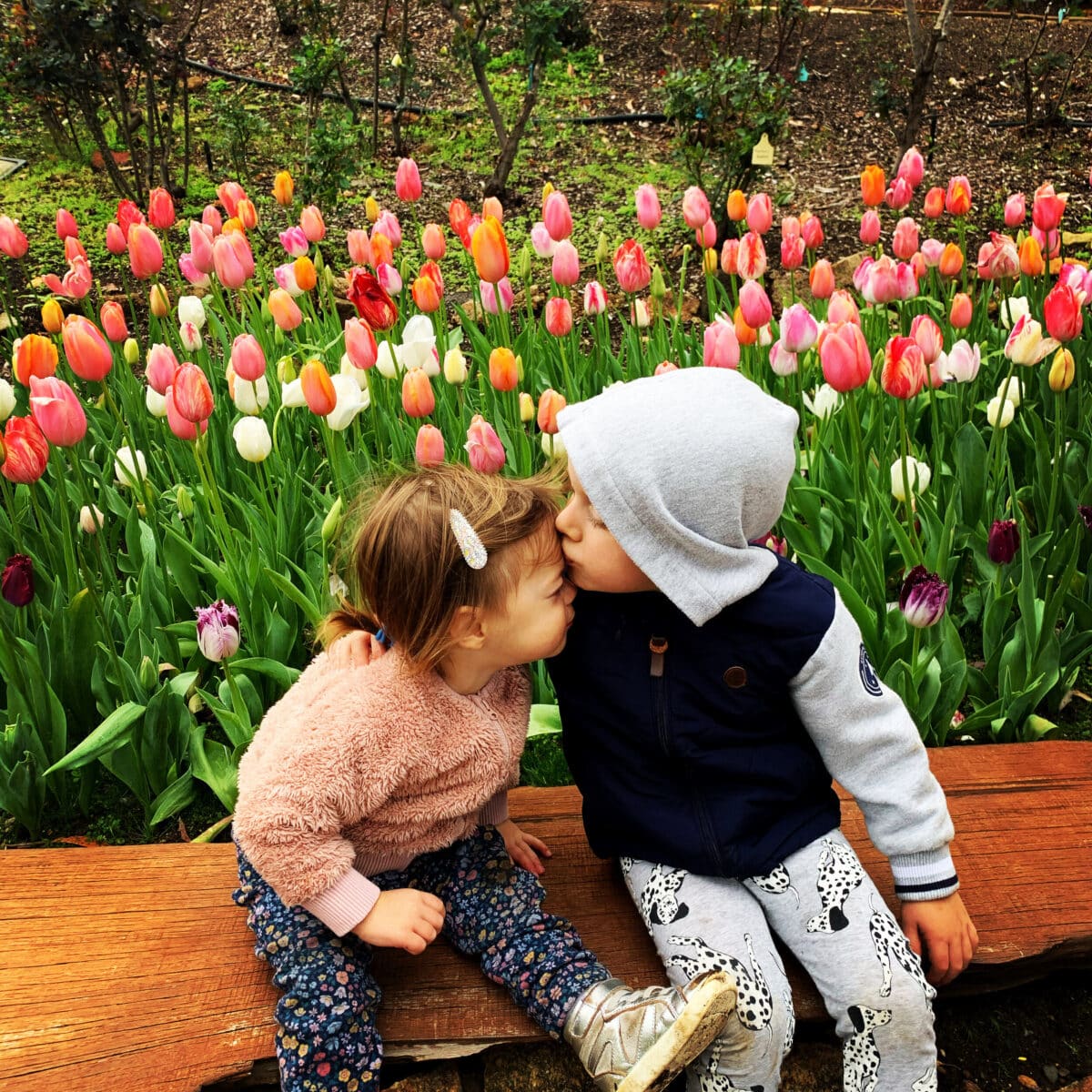
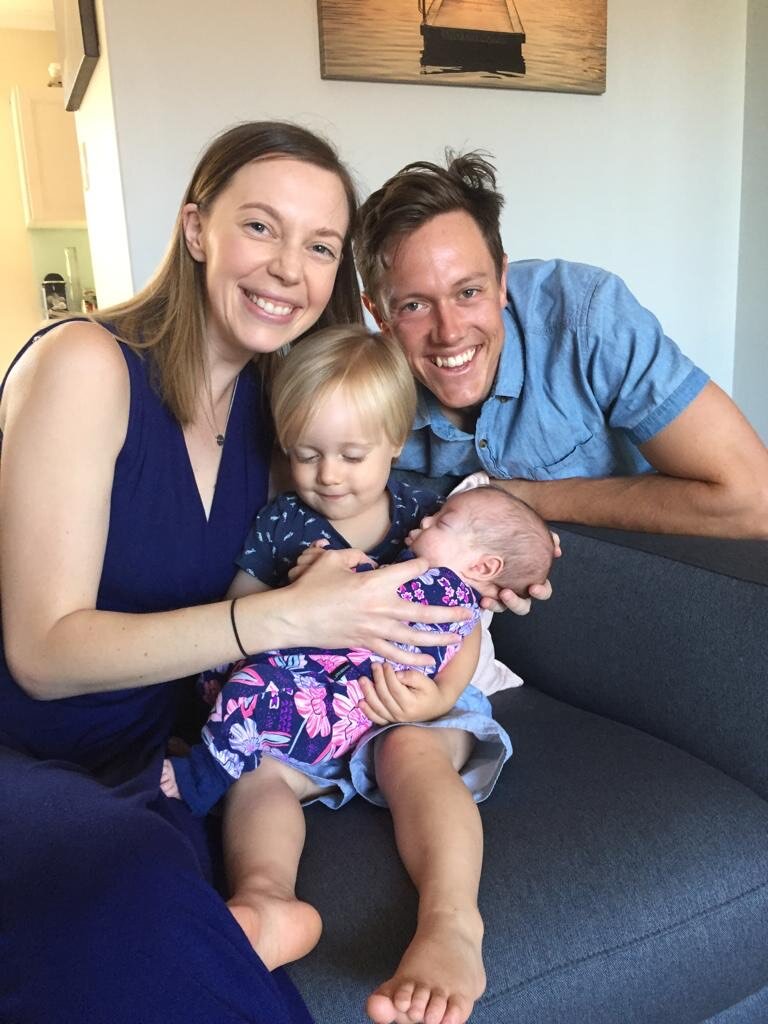
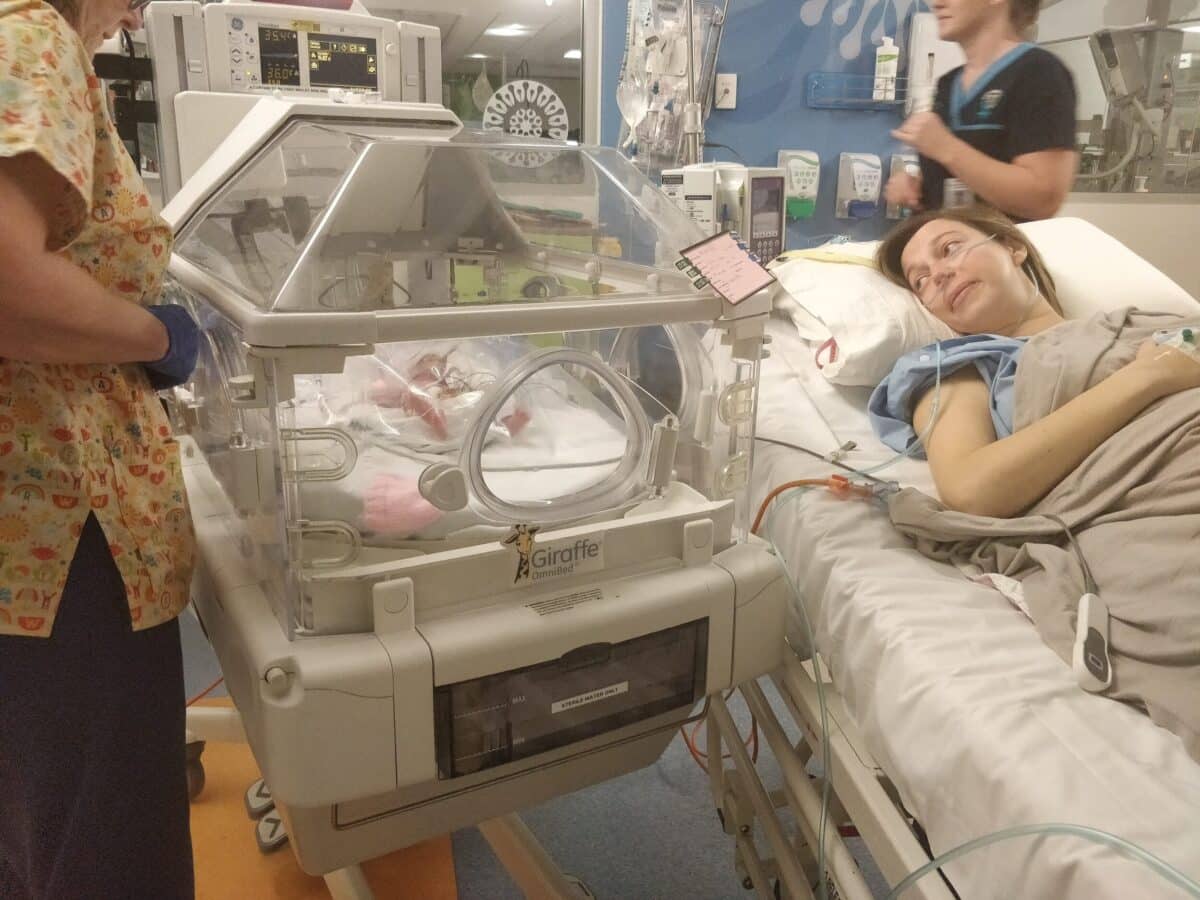
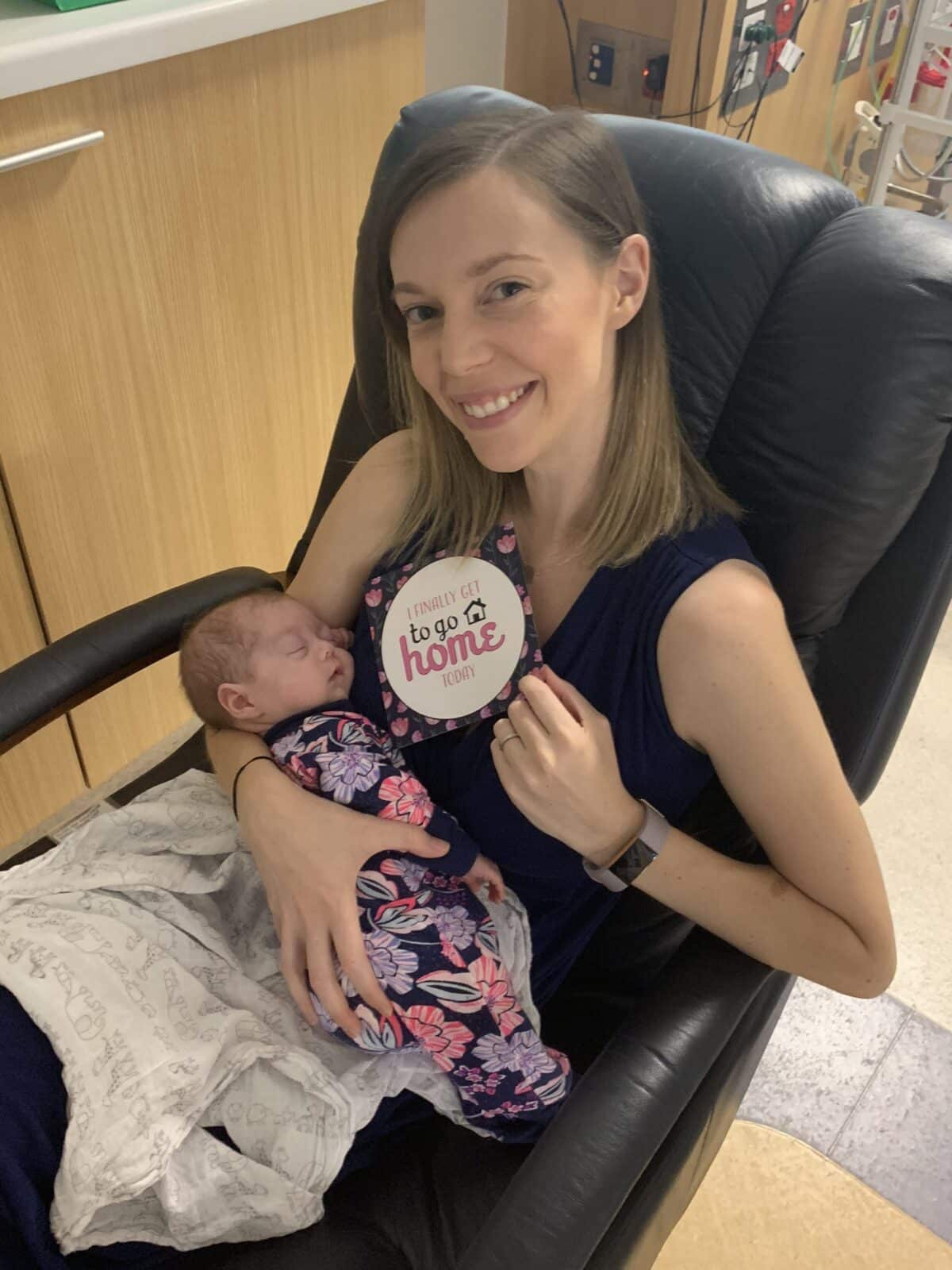
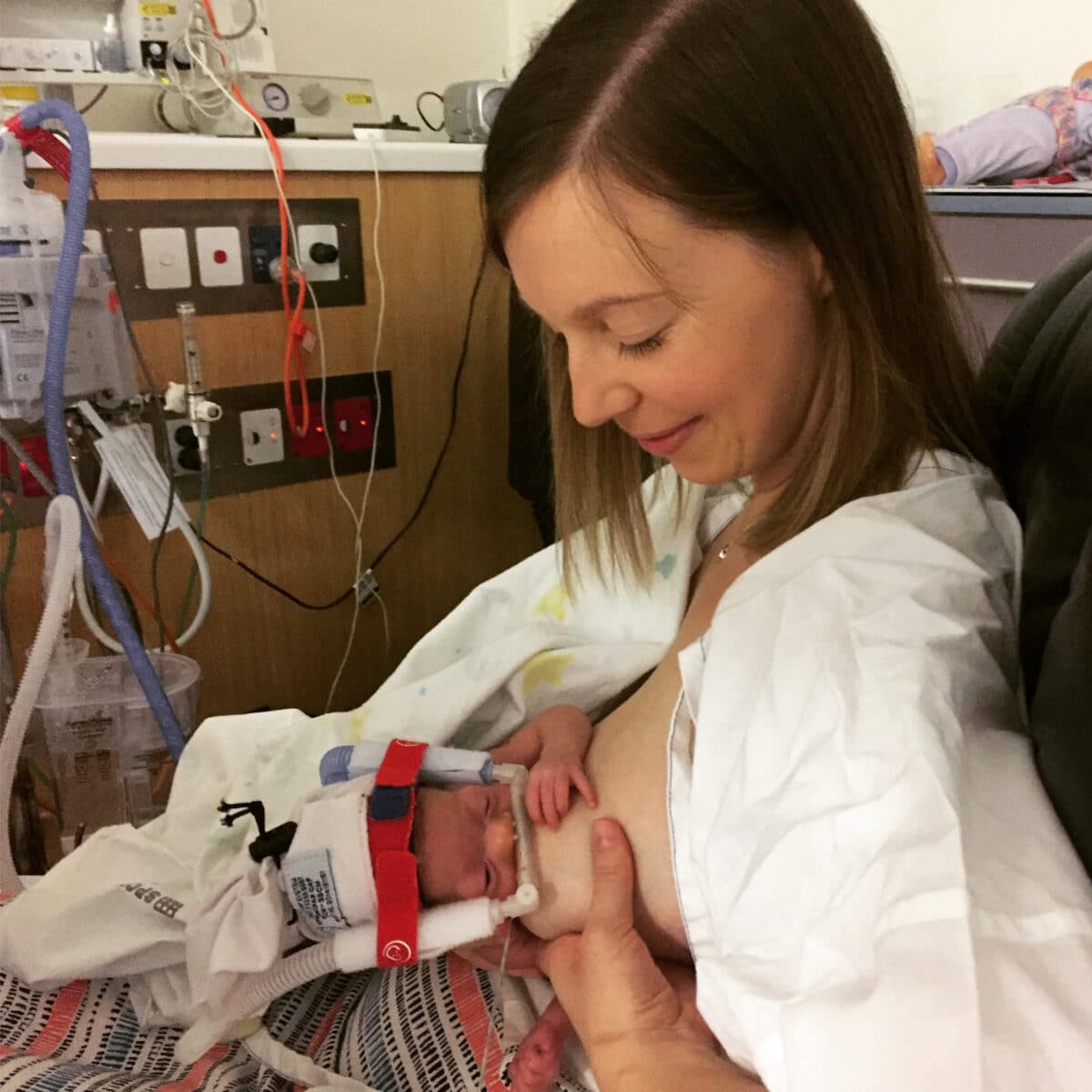
Episode Sponsor
Today’s episode of the show is brought to you by BabyLove. The BabyLove nappies rage are super soft, silky light material specially designed for a premature baby’s delicate skin. They have a ‘breathable cover’ that is designed to reduce dampness to help prevent nappy rash. BabyLove Premmie nappies have been certified against a list of over 350 harmful substances, and have been allergy tested to ensure your bub is in the safest & most trusted care. They even have an ‘umbilical cord notch’ so there is no discomfort to your baby’s navel area. Babylove truly care for bubs of all sizes, including premature and low birth weight newborns and are the trusted brand for Premmie babies. The Babylove Premmie range is a 2021 award-winning nappy, as rated by over 60,000 reviews from Australian parents.
27,000 babies are born prematurely year in Australia and BabyLove are proud to be in a long-term partnership with the Miracle Babies Foundation, Australia’s leading organisation supporting premature and sick newborns. To find out more about BabyLove and the rest of their nappy ranges, head to babylovenappies.com.au
Categories
Related Products
-
Birth Meditations
$49.00Narrated by Sophie Walker, these soothing and informative meditations help you feel supported and confident around birth.
Join the conversation
Sign up to get the latest updates, freebies, podcast releases straight into your inbox
@AustralianBirthStories
Follow along with us
@AustralianBirthStories
Follow along with us
@AustralianBirthStories
Follow along with us
@AustralianBirthStories
Follow along with us
@AustralianBirthStories
Follow along with us
@AustralianBirthStories
Follow along with us
@AustralianBirthStories
Follow along with us
@AustralianBirthStories
Follow along with us
@AustralianBirthStories
Follow along with us
@AustralianBirthStories
Follow along with us
@AustralianBirthStories
Follow along with us
@AustralianBirthStories
Follow along with us
